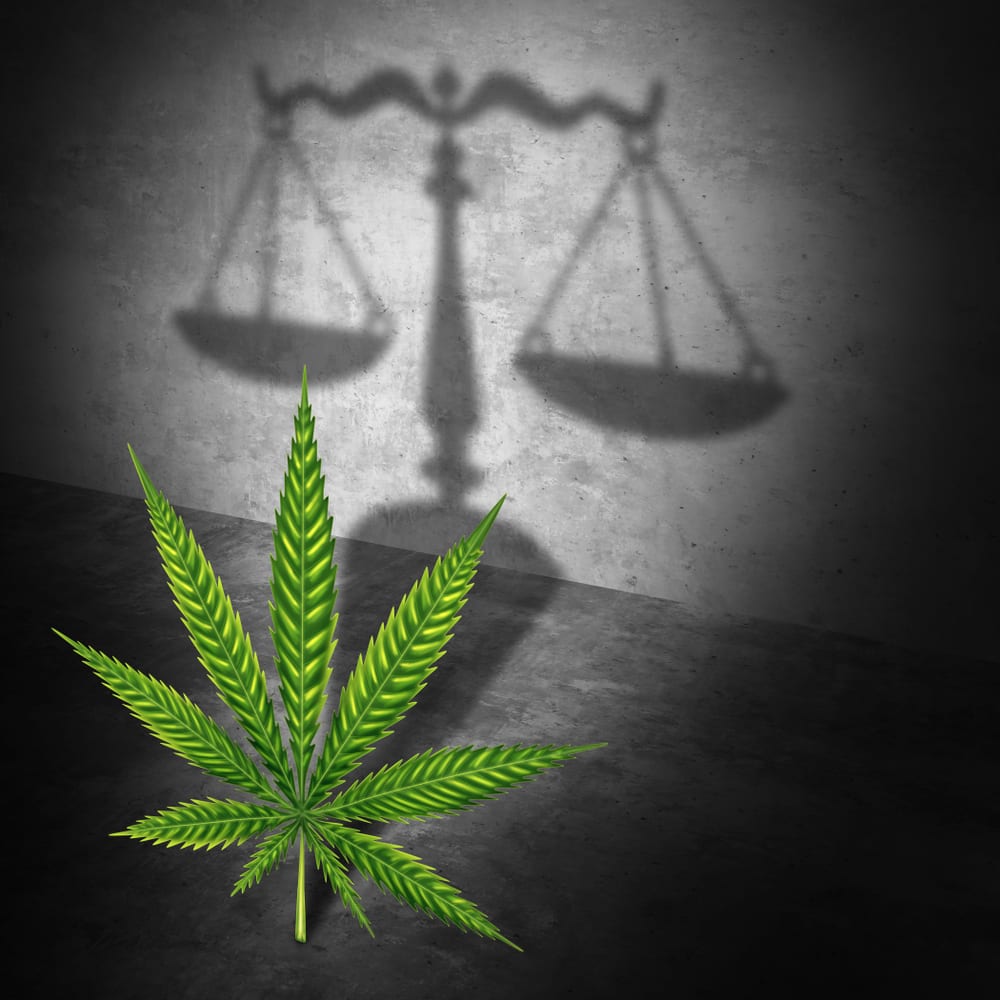
As many states begin to legalize marijuana, other states have taken smaller steps towards legalization by decriminalizing marijuana. But what about Rhode Island? Is weed decriminalized in Rhode Island? The answer is yes, for small amounts only.
Weed was decriminalized in Rhode Island on April 1, 2013. The legislation decriminalizing marijuana in Rhode Island was signed in 2012 by then-Governor Lincoln Chafee. Once weed was decriminalized in Rhode Island, possession of one ounce or less of marijuana became a civil penalty resulting in a fine. The fine for possession of less than an ounce of marijuana is $150.
Authorities may also seize your weed, and a third offense within a year and six months could result in misdemeanor drug charges and result in up to one year in jail and up to a $500 fine.
Is Weed Decriminalized in Rhode Island?
Rep. John Edwards (D) first introduced the decriminalization bill back in 2010 and found a sponsor in Sen. Joshua Miller (D), who included data from a study in the final legislation.
Mason Tvert is the Communications Director for the Marijuana Policy Project and said that the decriminalization law moves Rhode Island towards a marijuana policy that makes more sense. "It's great that adults in Rhode Island will no longer face criminal penalties simply for possessing a less harmful product than alcohol," he concluded.
Selling marijuana in Rhode Island is another story. Selling or cultivating large sums of marijuana is illegal and will land you in jail for a very long time. The sale or cultivation of less than one 1 kg is still considered a felony and will get you up to 30 years in jail. It will also earn you a fine of up to $100,000.
If you’re caught with between one and five kg of marijuana, you will get a mandatory minimum sentence of 10 years and could get up 50 years in prison, not to mention a possible fine of between $10,000 and $500,000.
If you’re caught with more than five kg of marijuana, you will go away for 20 to life and be fined $25,000 and $1,000,000. If you are caught selling marijuana within 300 yards of a school, the penalties are doubled. Selling to a minor will automatically get you between two and five years in jail.
Rhode Island Lawmakers Consider Legalizing Weed
Leaders in Rhode Island are more open to doing more than decriminalizing marijuana in the state. Gov. Gina Raimondo was previously against legalizing weed in Rhode Island but has since said that she would consider doing so provided regulating the drug would keep it away from minors. "We would have to figure out how to regulate it, so kids don’t get sick and we protect young people," she said.
Speaker of the House in the state Nicholas Mattiello (D) was also previously opposed to legalization but said in a debate late last year that all options would be considered. He also noted that while legalizing recreational marijuana would provide revenue for the state, it would also increase public safety concerns. "We will have to determine what the net impact would be for Rhode Island in light of the legal sales in Massachusetts and other states."
Sen. Dominick J. Ruggerio and president of the Senate also noted marijuana legalization in Massachusetts when considering marijuana legalization. "I will look to the experience in Massachusetts as legalization is implemented there and proceed very cautiously as we continue to have this important public discussion," said the senator.
Previous Weed Convictions Can Be Expunged
Gov. Gina M. Raimondo signed legislation into law in 2018 that allows people convicted of minor marijuana crimes to petition the court to have the conviction expunged. The new law applies to persons convicted of a crime that has since been decriminalized at no cost. The legislation was sponsored by Rep. Scott Slater (D) and Sen. Harold M. Metts (D).
"As a state, we have slowly been moving toward recognizing that more than punishment, compassion, reconciliation and prevention will better serve not only the individual, but society as a whole. The effects of harsh punishment and criminal records for minor drug offenses in particular have been poverty, lack of financial security and marginalization," said Metts.
The senator went on to say that criminalizing marijuana disproportionately affects people of color, adding that people should not have to continue to pay for something that is no longer a crime because of a criminal record. People with criminal records are denied employment, housing, and other opportunities.
Slater agreed that people with prior convictions should not be penalized because of their criminal records. "Allowing those who were already convicted of it to expunge that record is a way to correct the lingering negative effects," he said of previous pot convictions for marijuana crimes that have since been decriminalized.
If you live in the state or will be visiting, you now have the answer to: “Is weed decriminalized in Rhode Island?” So, if you’re not a medical cardholder, it would be wise to keep your marijuana stash under an ounce, or you could face a lengthy prison sentence, despite weed decriminalization in Rhode Island.

















